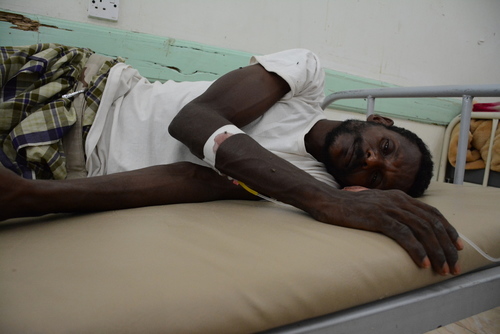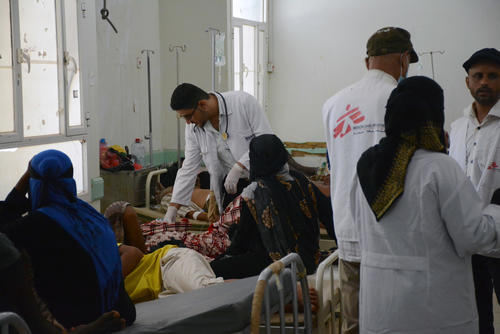From the escalation of the cholera outbreak in Yemen in early April 2017 to 17 June, the number of suspected cholera cases reported by World Health Organization (WHO) and national health authorities had reached 151,400, with 1,054 deaths registered.
Cases are now being reported from 19 out of 22 governorates, four more than during the last outbreak of the infection. Between early April and 18 June, MSF received 41,479 patients with cholera and acute watery diarrhoea. Of the more than 41,000 patients seen since 30 March, over 17,000 people sought treatment between 4 and 18 June.
Health workers and all relevant authorities need to work hand in hand to control the epidemic. Poor sanitation and the lack of safe drinking water due to Yemen’s ongoing conflict make the population more susceptible to cholera, particularly people suffering from chronic and acute malnutrition.
As the outbreak spreads to poorer communities in remote areas, it is increasingly difficult for those affected to travel to health facilities in time to be treated.
Outreach activities, including chlorination of infected water sources and the distribution of hygiene kits, are key to limiting the spread of the disease. Many households in Yemen use individual wells, which will make the detection of corrupted water sources a lengthy process.

In the first few weeks of the outbreak, MSF was working in five cholera treatment centres (CTC). To help cope with the rising number of patients, teams are now running nine cholera treatment centres, seven cholera treatment units, and two stabilisation units in nine governorates (Amran, Hajjah, Ad Dhale, Hodaidah, Ibb, Taiz, Sana’a, Aden and Abyan). MSF is expanding the capacity of some CTCs and evaluating needs in other locations where it is providing support through donations.
MSF will focus on hygiene promotion in hard-to-reach areas, as well as chlorination of wells. Awareness-raising is to be carried out via radio stations and in collaboration with mosques. MSF will provide hygiene kits and disinfection kits to patients and their families at CTCs.




